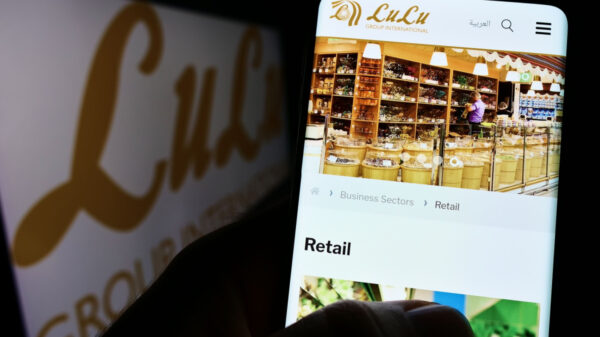Buy-now-pay-later platforms are expected to grow across the UAE and the greater region.
The UAE was deemed a market with significant potential for financial technology by the Middle East and North Africa FinTech Association, with non-cash payments estimated to account for 70 per cent of purchase transactions by the end of next year.
Twenty-one per cent of consumers in the country have already used buy-now-pay-later schemes, with more than 31 per cent intending to do so in the next 12 months, according to analysis of consumer habits in the Middle East by global payment platform Checkout.com.
Buy-now-pay-later platforms are popular among customers because of their efficiency, convenience and promise of no interest or added fees, given instalments are timely paid.
Although used by consumers of all ages, buy-now-pay-later schemes are particularly popular among millennials and Gen Z consumers.
“Customers benefit from rapid gratification, a flexible return policy, easy access to credit and the ability to manage their finances by spreading the cost of purchases over a predetermined time frame,” Nick Curran, head of Middle East and North Africa operations at software development company Endeva, told Khaleej Times.
Brands registered with such platforms can also profit, thanks to increased sales and customer loyalty and fewer cases of cart abandonment.
Buy-now-pay-later schemes operate with no risk to registered brands since platforms pay retailers instantly and cover administrative costs.
Tabby, buy-now-pay-later mobile application operating in the UAE and Saudi Arabia, also helps brands by giving them numerous benefits, such as placement of curated content, promotions and deals and allowing them to leverage its in-house marketing team and increase user traffic and visibility.
Mr Curran added: “Aside from the fact that embracing buy-now-pay-later can improve sales, the appeal is that it can be used for much more than just payments.
“Buy-now-pay-later firms have vast amounts of data that retailers can use to enhance customer loyalty by offering more targeted products.”
With more banks, payment schemes and businesses wanting to penetrate the region’s market, more buy-now-pay-later schemes are expected to appear in coming years.
Super apps that integrate retail, financing payments and banking offerings, such as Globally, Klarna, Affirm and PayPal, are also likely to grow more popular, as they give consumers a one-stop-shop experience, said Mr Curran.
Tabby reported that it had achieved its highest user engagement last year, recording 26 million clicks to its retail partners’ platforms.
The application, which also offers shopping options, has partnered with more than 3,000 retailers.
At present, the company entertains two million active shoppers in the UAE and Saudi Arabia, and receives more than three million clicks each month.
Eight of the UAE’s and the kingdom’s largest retail operators selected Tabby as their payment preferred partner in the past two years, including UAE’s Al Futtaim Group, Saudi Arabain e-commerce site Salla and the Landmark Group’s online-only fast fashion brand, STYLI.
Other brands in the region partnered with Tabby include IKEA, SHEIN, Adidas, Level Shoes, H&M and Bloomingdale’s.
Last month, Saudi-based buy-now-pay-later platform Tamara expanded its network to the UAE.
Shoppers across the UAE can now use the start-up’s scheme when shopping at Namshi, SHEIN, STYLI, Fitness time, Faces and Swarovski.
“Dubai is the natural second home for Tamara,” said Abdulmajeed Alshukhan, CEO and co-founder of Tamara.
“The city is a global outpost for innovation, especially in financial technology, and has proven in the past few years its resilience and leadership in unpredictable economic conditions.
“Given the strong market potential and current growth rates, we anticipate signing up 1,000 merchants here by the end of the year.”
Ten per cent of consumers shopping online in the UAE used buy-now-pay-later schemes in 2020, according to market consultancy firm RedSeer.
The firm estimates that this figure will rise to 30 per cent by 2026 and amount to over $2 billion in credit.













